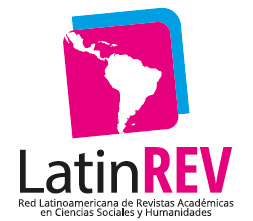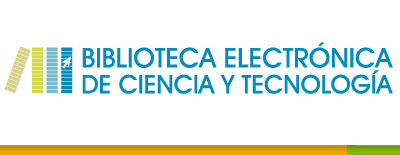Social networks and pre-university young people in Spain
The new axis of socialization and communication
Abstract
This article discusses the results of a long-term research (2011-2012) on social networks used by Spanish pre-university young people, which was conducted by researchers at the Universidad Complutense (Madrid). The research project, funded by Telefónica SA, analizes a sample of 400 pre-university students in Madrid using a quantitative analysis method, so as to establish uses, motivations and time-consuming habits concerning the main Spain’s social networking. It developed also focus groups and qualitative interpretation of the results, as well as the connection with existing theories about networks and primary communication groups. The main conclusion is the emergence of a new axis of socialization, not comparable with the primary communication processes, and complementary to other distant or secondary processes such as cultural communication and education. Social networking sites turn out to be a vital factor in the integration of young people into cultural, social, and symbolic distant universes, making possible to establish new forms of contact. This phenomenon is set to revolutionize interpersonal human communication.
Downloads
References
Aladro, E. (2011). La teoria de la Informacion ante las nuevas tecnologias. Cuadernos de Información y Comunicación CIC, 16, 83-93.
Back, M. D., Stopfer, J. M., Vazire, S., Gaddis, S., Schmukle, S. C., Egloff, B. & Gosling, S. D. (2010). Facebook profiles reflect actual personality, not self-idealization. Psychological Science, 21, 372-374.
Barker, V. (2009). Older adolescents’ motivations for social network site use: the influence of gender, group identity, and collective self-esteem. Cyberpsychology & Behavior 12 (2), 209-213.
Bryant, J. & Oliver, M. B. (2009). Media effects: advances in theory and research. London: Routledge.
Castello Martinez, A. (2010). Estrategias empresariales en la web 2.0: las redes sociales online. Barcelona: Edit. Club Universitario.
Chalmers, D. & Clark, A. (2011). La mente extendida. Cuadernos de Información y Comunicación CIC, 16, 15-28.
Cooley, C. H. (1902). Human nature and social order. New York: Scribner’s.
Dans, E. (2010). Todo va a cambiar: tecnología y evolución: adaptarse o desaparecer. Bilbao: Deusto Ediciones.
De Kerckhove, D. (1999). Inteligencias en conexión. Barcelona: Gedisa.
Ellison, N. B., Steinfield, C. & Lampe, C. (2007). The benefits of Facebook “friends”: social capital and college students’ use of online social network sites. Journal of Computer-Mediated Communication, 12 (4), 1143-1168. doi:10.1111/j.1083-6101.2007.00367.x
Goffman, E. (1980). La presentación de la persona en la vida cotidiana. Buenos Aires: Amorrortu.
Greenhow, C. (2010). The role of youth as cultural producers in a niche social network site. New directions in youth development: theory, research & practice, 128, 55-64. doi: 10.1002/yd.
Holder, D. (2006). Ethnographic study of the effects of Facebook.com on interpersonal relationships. Tomado el 6 de febrero de 2012 de: http://www.docstoc.com/docs/2374240/Ethnographic-Study-of-the-Effects-of-Facebookcom-on-Interpersonal .
Jenkins, H. (2008). Convergence culture: la cultura de la convergencia de los medios de comunicación. Barcelona, Paidós.
Manovich, L. (2005). El lenguaje de los nuevos medios de comunicación social. Barcelona: Paidós.
Merton, R. (1988). Teoría y estructura sociales. México: Fondo de Cultura Económica.
Nos Aldas, E., Iranzo, A. & Farne, A. (2012). La eficacia cultural de las ONGD, los discursos de los movimientos sociales actuales como revision. Cuadernos de Información y Comunicación CIC, 17, en prensa.
Ortega, P. (2011). 15M .Dónde estamos las ONG?. En: Blog de la Fundacion Haz lo Posible. Madrid. Tomado el 3 de marzo de 2012 de: http://hazloposible.org/wp/15m-%C2%BFdonde-estamos-las-ong/
Padilla, G. & Requeijo, P. (2011). Las motivaciones, usos y estructura de las presentaciones audiovisuales mediante
correo electronico: un estudio multidisciplinar. Cuadernos de Información y Comunicación CIC, 16, 189-195.
Rheingold, H. (2004). Multitudes inteligentes: la próxima revolución social. Barcelona, Gedisa, 2004.
Schau, H. J. & Gilly, M.C. (2003). We are what we post? Self-presentation in personal web space. Journal of Consumer Research, 30 (3), 385-404.
Sheeks, M. S. & Birchmeier, Z. P. (2007). Shyness, sociability and the use of computer-mediated communication in relationship development. Cyberpsychology & Behaviour, 10 (1), 64-70.
Shih, C. (2010) The Facebook era: tapping online social networks to build better products, reach new audiences, and sell more stuff. Upper Saddle River, New Jersey: Prentice Hall.
Steinfield, C., Ellison, N. & Lampe, C. (2008). Social capital, self-esteem, and use of online social network sites: a longitudinal analysis. Journal of Applied Developmental Psychology 29 (6), 434-445. doi:10.1016/j.appdev.2008.07.002.
Turkle, S. (2011): Alone together: why we expect more from technology and less from each other. New York: Basic
Books.
Valbuena de la Fuente, F., Aladro, E. & Sáez, R. (2007). Motivaciones de los jóvenes para leer en público: un estudio de consecuencias y consecuencias personales, sociales y medioambientales. Revista Española de Drogodependencias 32 (4), 539-543.
Valerio-Urena, G., Valenzuela-González, R. (2011). Redes sociales y estudiantes universitarios: del nativo digital al informivoro saludable. El profesional de la información 20 (6), 667-670.
Wilson, R., Gosling, S. & Lindsay, G (2012). A review of Facebook research in the social sciences. Perspectives on Psychological Science 7 (3), 203-220.
Copyright (c) 2012 Eva Aladro Vico, Felicísimo Valbuena, Graciela Padilla

This work is licensed under a Creative Commons Attribution-NonCommercial 4.0 International License.
The authors retain the copyright and guarantee the journal the right to be the first publication of the work. In case that a translation of the article already published in Austral Comunicación can be published in another journal, it is requested to record the original publication in the translated version.
The license used is CC BY-NC-SA, which allows sharing (copying and redistributing the material in any medium and format) and adapting (remixing, transforming and building on the material) under the following terms: attribution (acknowledge authorship) and non-commercial (the material cannot be used for commercial purposes). Update: February 1, 2022.
Austral Comunicación allows the author (s) to retain the publication rights without restrictions.











































